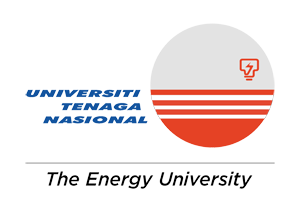Strategic Energy Transition Towards Carbon Neutrality Under the Impact Of Covid-19: Lessons From Japan
Published on Monday, September 6, 2021On August 26th, 2021, the Institute of Energy Policy and Research (IEPRe), Universiti Tenaga Nasional (UNITEN) has organized a live webinar session entitled ‘Strategic Energy Transition Towards Carbon Neutrality Under the Impact Of Covid-19: Lessons From Japan’. The speaker of this webinar is Professor Dr. Ken Koyama, the Managing Director of the Institute of Energy Economics, Japan (IEEJ). He is also currently the Chair of Energy Economics of Energy Commission at UNITEN since 7 December 2015.
The live event was moderated by the Director of the Institute of Energy Policy and Research (IEPRe), Ts. Dr. Siti Indati Mustapa. The webinar commenced at 10.00 a.m. with a brief overview of the statutory functions of IEPRe and the introduction of the speaker, Professor Dr. Ken Koyama.
Professor Dr. Ken Koyama presented the recently announced Strategic Energy Plan (SEP) which is the 6th SEP with two specific targets which are to achieve carbon neutrality in 2050 and to reduce 46% of greenhouse gas emissions in 2030 while putting emphasis on the 3E+S concept (energy security, environmental protection, economic efficiency, and safety) and utilizing innovative technologies.
The speaker commenced his presentation by highlighting the global energy landscape affected by COVID-19, producing uncertainty and volatility of the global energy market. In addition, the global energy landscape is affected by the global waves of carbon neutrality targets, the new US administration, and the emerging US-China “cold-war”. It is expected that advanced and innovative technology will play a bigger role in enhancing energy security and climate change protection.
Professor Dr. Ken Koyama reiterated the volatility of the global oil and gas market due to COVID-19. In the meantime, developed nations lead by European Union, followed by China, Japan, and the United States have announced their carbon neutrality target. Promotion of energy efficiency, non-fossil energy, and electrification with zero-emission is crucial to achieving carbon neutrality. In addition, innovative technology such as hydrogen, direct air capture, bio-hydrogen, and carbon capture and storage is required to achieve carbon neutrality. Prof. Dr. Ken Koyama also mentioned the Net Zero Emission Report produced by the IEA, which is generated by the backcasting method, suggesting by 2050 all nations shall achieve net-zero emissions.
The live webinar comprises 30 minutes presentation by Professor Dr. Ken Koyama, followed by a 30 minute moderated discussion session managed by the moderator. The live webinar had 95 participants from various organizations within and outside Malaysia. The organizers engaged the attendees to send in questions while the webinar was in progress. The questions from the attendees were addressed by Professor Dr. Ken Koyama during the Q&A session at the end of the webinar. Among significant questions raised by the attendees include:
1. Will blue hydrogen play a legitimate role in the energy transition?
2. What is the difference between carbon-neutral and net-zero emissions?
3. What is your advice to Malaysia on having nuclear energy as part of the future energy mix?
4. Does the Japanese government consider the public’s opinion on the SEP?
5. Does the Japanese energy mix cover the whole energy spectrum or just the electricity? Does COVID-19 accelerate the use of hydrogen energy in Japan?
6. Does the projected 2050 Japanese energy mix include battery storage required by solar energy?
7. In reference to the projection made by IEEJ, it was found that CCUS integrated into the projected scenarios enables lower electricity costs. Can this trend be generalized across ASEAN countries?
The live webinar ended at approximately 11.45 a.m. At the end of the live webinar, the moderator highlighted a few key takeaways for Malaysia which include the roles of medium- and long-term energy transition measures, consistent policies, and adequate digital infrastructures in achieving ambitious targets of carbon neutrality. The moderator reiterated that the motivation towards carbon neutrality should be shared across all stakeholders comprising the government, industries, and the community to ensure concrete action could be embarked.
The slide for this webinar can be downloaded here

